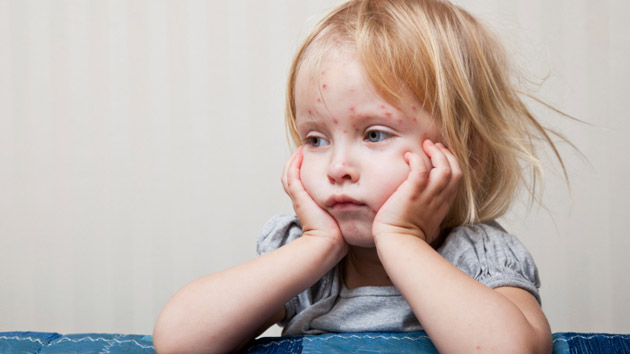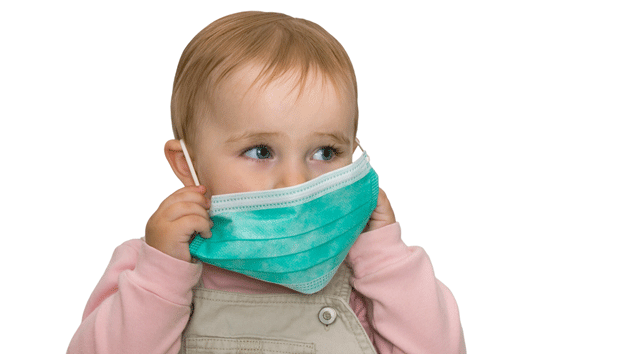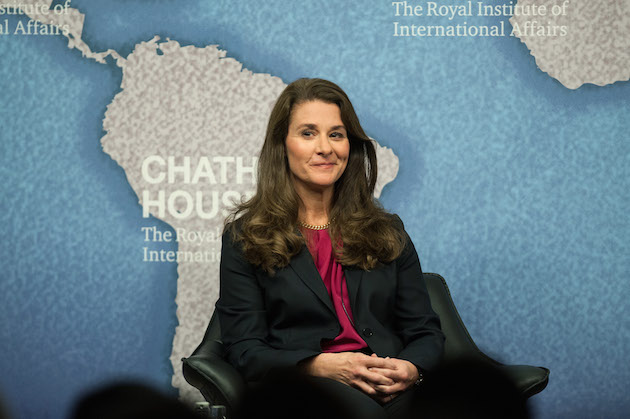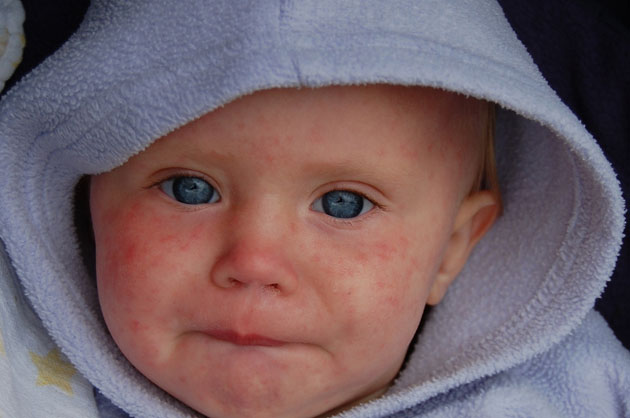
<a href="http://www.thinkstockphotos.com/image/stock-photo-sick-girl-is-sitting-near-the-bed/153565602/popup?sq=measles/f=CPIHVX/s=DynamicRank">s-dmit</a>/Thinkstock
Measles is not only highly contagious, it’s expensive to contain—especially for cash-strapped local governments. Researchers at the Centers for Disease Control and Prevention (CDC) calculated that outbreaks in 2011—a total of just 107 cases—cost state and local taxpayers up to $5.3 million. That may not seem like a lot, but with more than triple that number of cases last year, and a growing number of unvaccinated children, the costs are really going to add up.
In 2014, there were 23 outbreaks in the United States and 644 confirmed cases—the most since the disease was declared all but eliminated back in 2000. And at last count, there were 66 cases in six states and Mexico linked to the Disneyland outbreak, which began in December and may be far from over.
Despite whatever nonsense Dr. Bob Sears might spout, measles is no joke. The CDC has released an official health advisory warning public health departments and health care facilities of the need for greater vaccine coverage and the “importance of a prompt and appropriate public health response to measles cases and outbreaks.” State and local health agencies are ramping up efforts to contain it, especially in California, which has the most cases. Some have even begun enforcing quarantines. And all of this, as the CDC notes, costs money:
Due to its high infectiousness and the potential severity of complications, a measles outbreak often constitutes a serious public health event entailing a vigorous response from local public health departments and can involve multiple states and counties…As a result of the amount of effort and resources reallocated to the outbreak response, the economic toll in these public health departments could be significant.
The problem is expected to get worse, and more expensive, thanks to the growing numbers of people who, based on discredited science or religious convictions, refuse to have their children vaccinated.

The CDC’s 2011 report highlighted the opportunity costs associated with outbreaks, which divert resources that could be used to manage other public health problems. What’s more, especially when it involves such a communicable disease, an outbreak can create major headaches for hospitals and clinics. Thirty babies, for instance, were recently placed on home quarantine after a deliberately unvaccinated child with measles was found to have passed through the same department at the Kaiser medical center in Oakland, California.
Sherri Willis, a spokeswoman for the Alameda County Public Health Department (which has jurisdiction over Oakland) says 20 of the babies have since been cleared. But, with six confirmed cases in the county so far, investigations into who measles patients have come into contact with have become the agency’s priority. The department has had to shift its entire focus. “We are now tracking hundreds of people who came in to contact with the six cases,” she says. “It is extremely time consuming.”
Outbreaks can also stretch the resources of police departments, which have to enforce quarantines, not to mention schools and universities, which can serve as incubators. The costs are compounded, the CDC notes, by the duration of the outbreak and the number of potentially susceptible contacts a patient has had—a number that can be very high in communities where a lot of parents fail to vaccinate their children.
The World Health Organization has also stressed the financial burden of measles in comparison with the much lower cost of vaccinating people. “Complacency and unfounded scares about vaccine safety have led to a situation where measles is just waiting to strike in many countries,” Guenael Rodier, director of the Division of Communicable Diseases, Health Security and Environment at WHO/Europe, noted in a 2013 press release. “These countries could find they are hit hard economically. Scrimping on vaccination is a very expensive decision.”
Though its still unclear the extent to which the current outbreak will affect local health agencies in the longer term, Willis emphasizes that vaccine coverage in recent years has been slipping, and that parents need to step up and get real. “Measles is a vaccine-preventable disease,” she says. “The vaccine is safe. The vaccine is effective. The issue here is for people to take this disease seriously.”















